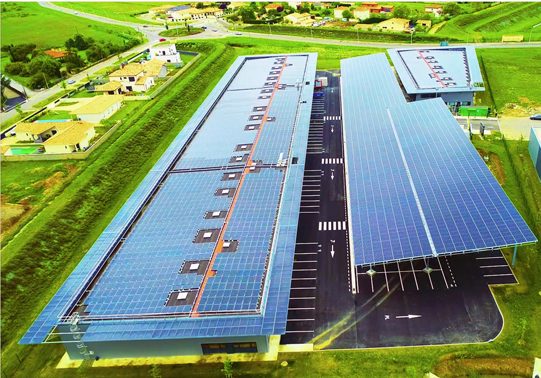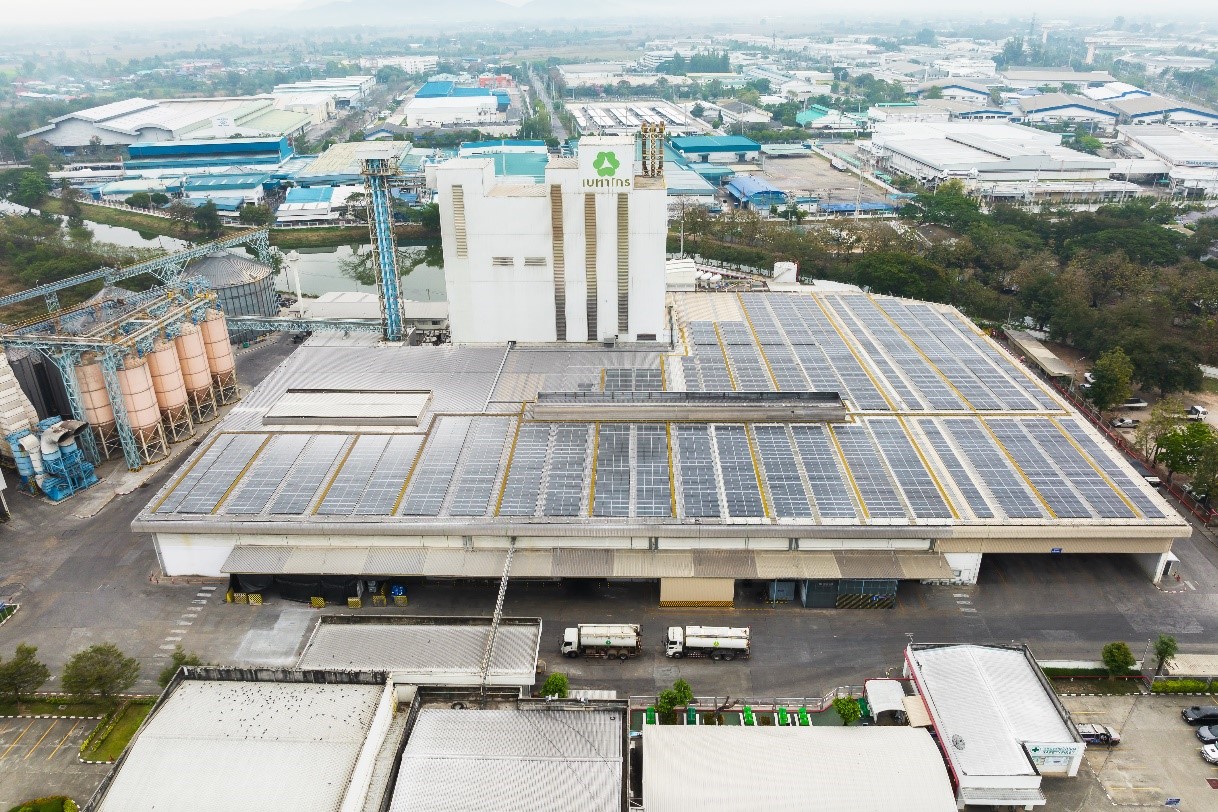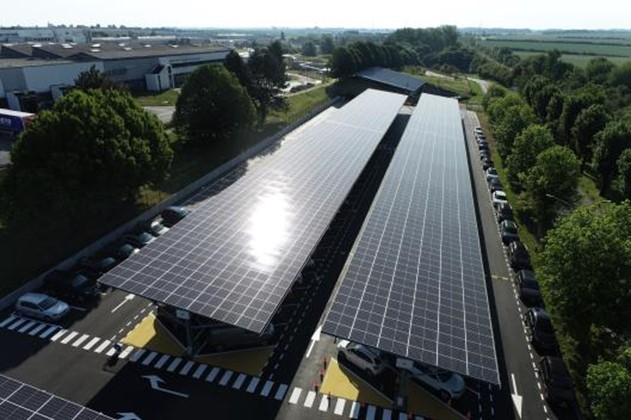Loi Accélération des EnR
Accélération de la production d’énergies renouvelables, GreenYellow décrypte la Loi du 7 février 2023
Présenté au Conseil des Ministres le 26 septembre 2022 par Madame Agnès PANNIER-RUNACHER, en qualité de Ministre de la Transition Energétique, le texte relatif au projet de loi pour l’accélération de la production d’Energies Renouvelables (EnR) a été adopté en première lecture – avec modifications – par le Sénat le 4 novembre 2022.

S’en est suivi le 10 janvier 2023, le vote en première lecture par l’Assemblée nationale. Puis le 24 janvier 2023, députés et sénateurs réunis en Commission Mixte Paritaire (CMP) ont trouvé un accord sur une version finale adoptée par l’Assemblée Nationale le 31 janvier 2023 et voté par le Sénat le 7 février.
Pour retrouver le texte complet, consulter le site du Gouvernement
Analyse & décryptage de la loi d’Accélération de la Production d’Energies Renouvelables…
Ce que GreenYellow peut dire de cette nouvelle réglementation
Cette nouvelle loi EnR met en effet l’accent sur le développement du solaire décentralisé sur des fonciers déjà artificialisés (exemple : parking, toitures, friches, délaissées) et sans conflit avec les aspects environnementaux. Elle permet d’accélérer le déploiement de ce type d’installation et de se rapprocher des objectifs fixés dans le Programmation Pluriannuelle de l’Energie (PPE).
Les trois axes de la loi :
- Simplifier les procédures.
- Mobiliser des espaces délaissés ou dégradés.
- Et mieux partager la valeur avec les territoires.
Malgré les freins restant à lever, le solaire photovoltaïque est compétitif et plébiscité
La principale avancée de la loi d’accélération de la production d’énergies renouvelables concerne le déploiement du solaire photovoltaïque sur les parkings et les toitures (environ 10GW). Néanmoins, cela reste insuffisant par rapport aux objectifs de la PPE qui sont d’atteindre les 100 (cent) Gigawatts (GW) de capacité installée en 2050.
L’engouement pour le solaire photovoltaïque est confronté à des délais d’approvisionnement qui sont de plus en plus longs. Cela impacte les durées de mise en œuvre, qui sont également soumises à des délais de traitements administratifs.
Pour autant, une prise de conscience globale autour du dérèglement climatique induit des changements de paradigme dans les processus de prise de décisions et les priorités stratégiques des sociétés. Les entreprises ont la volonté d’accélérer la décarbonation de leurs activités et de concrétiser leurs engagements RSE (Responsabilité Sociétale des Entreprises) à leur niveau, mais également au niveau de leurs fournisseurs et partenaires. Cela favorise leur image de marque, leur compétitivité et leur permettent de répondre aux obligations législatives. On peut notamment citer l’exemple de la loi Pacte qui impose aux entreprises cotées en bourse et aux entreprises de plus de 500 salariés ou générant un chiffre d’affaires de plus de 100 millions d’euros à publier chaque année un reporting extra-financier.
La vision GreenYellow concernant la loi EnR
Favoriser un changement de paradigme au sein des entreprises
Bien que la mise en œuvre de la transition énergétique fasse l’unanimité, on a pu constater une certaine inertie des années durant. Aussi, face à l’urgence climatique, on assiste à une montée en puissance des réglementations en faveur de la transition énergétique en France et en Europe, ainsi que de la volonté de souveraineté énergétique.
Avant les changements réglementaires (Loi du climat & résilience, Pacte vert, Fit for 55, …), les sujets solaires photovoltaïques étaient étudiés en majorité par les sociétés du CAC40/SBF120, selon des schémas de décision longs, des contraintes de coûts fortes et des études pour déterminer si les entreprises les internalisaient ou les externalisaient.

On assiste à un engouement pour le solaire en autoconsommation qui devient un levier de compétitivité économique en plus de contribuer à la sobriété énergétique. Les précurseurs grands donneurs d’ordre accélèrent le phénomène, ce qui témoigne d’une vraie tendance de fond.
Les sociétés souhaitent donc aller plus loin et développer leurs projets de production d’énergie renouvelable dans un laps de temps très courts (18 à 24 mois). Ainsi, le solaire décentralisé trouve toute sa place avec une délégation à un tiers investisseur expert du domaine, qui prend en charge le projet dans sa globalité dans des temps de déploiements courts et assume les risques associés.
Les schémas de décisions sont raccourcis afin de délivrer les solutions solaires photovoltaïques dans des délais optimisés. Afin de contribuer à ce mouvement, la loi doit favoriser l’accélération des demandes administratives et les délais de recours ; ce qui contribuera également à rattraper notre retard en matière de développement des énergies renouvelables.

- Nombre de distributeurs disposent de surfaces de toitures et de parkings suffisantes pour un dimensionnement en autoconsommation qui couvre 25 à 30% de leurs consommations.
Loi d’Accélération de la Production d’énergies Renouvelables et quelques profils types d’entreprises par secteur d’activité
- L’Industrie dispose de fonciers (parkings et toitures) visée par la nouvelle loi. Pour les industriels qui se relocalisent en France, un projet solaire photovoltaïque sera d’autant plus facile à mettre en œuvre qu’il pourra être intégré dès la conception du site.
- La grande distribution alimentaire a également des caractéristiques qui se prêtent bien au solaire photovoltaïque avec :
- Des surfaces de toit ou de parkings disponibles.
- D’importants besoins énergétiques pour répondre, notamment, aux impératifs de gestion de la chaîne du froid 7 jours/h24.
- Et l’enjeu de se conformer aux obligations réglementaires (implantation sur les parkings et les bâtiments neufs).
- Le retail est un secteur concurrentiel qui a vu ses coûts d’exploitation énormément augmenter ces dernières années. Diminuer le volume de kWh soutiré au réseau, grâce à l’autoconsommation solaire photovoltaïque, représente un véritable avantage concurrentiel.
De manière générale, une approche globale des enjeux et du profil énergétiques des entreprises permet d’accroître les bénéfices carbones et financiers sur ses actifs. Aussi, la mise en place de projets d’efficacité énergétique au préalable de la réalisation d’un projet solaire photovoltaïque va réduire durablement les consommations d’énergie d’un site, ce qui permettra, par la suite, de dimensionner de façon optimisée une centrale solaire en autoconsommation.
Le solaire pour des bénéfices économiques et écologiques
Réduction de la dépendance énergétique et de l’empreinte carbone
La mise en place d’une centrale solaire photovoltaïque décentralisée permet de diminuer sa facture d’énergie en réduisant sa dépendance énergétique vis-à-vis du réseau. Des dispositions favorisant l’installation de projets solaires photovoltaïques de ce type sont bien entendu intégrées à la loi d’accélération de la production d’énergies renouvelables.
Il y a là un double bénéfice recherché :
- Bénéfices écologiques :
- Verdir le mix énergétique français en favorisant le déploiement des EnR et notamment le solaire photovoltaïque.
- Exploiter des espaces anthropisés et « perdus pour la nature », c’est-à-dire des fonciers déjà artificialisés, tels que les parkings, les toitures et les délaissés autoroutiers.
- Bénéfices économiques :
- Réduire sa facture énergétique grâce au solaire photovoltaïque décentralisée.
- En utilisant l’énergie produite localement par la centrale solaire implantée sur site, le client diminue le volume d’énergie soutiré au réseau.
- Valoriser son foncier en y intégrant des énergies nouvelles telles que le solaire photovoltaïque.
Pour en connaître davantage sur le solaire photovoltaïque en autoconsommation, suivez ce lien.
Pour en savoir plus sur les solutions solaires GreenYellow sur-mesure et clef en main de notre offre #SHIFTProduction, consultez cette page.
L’agrivoltaisme et la loi d’Accélération de la Production d’énergies Renouvelables
La logique de délégations par les Chambres d’Agriculture permet de centraliser l’approche. Cependant, cette planification territoriale, avec un pilotage ascendant (du local), semble encore insuffisante par rapport aux moyens humains et financiers qui sont mis en face, pour un déploiement rapide.
Pour aller plus loin…
L’efficacité énergétique complète les solutions solaires décentralisées
GreenYellow a en effet développé une plateforme globale d’offres en : solaire photovoltaïque, efficacité énergétique, services à l’énergie et mobilité électrique, qui nous permet d’accompagner nos clients sur toute la chaîne de valeur, avec des engagements de résultats.
Pour en savoir plus sur les solutions d’efficacité énergétique clé en main de notre #SHIFTEfficiency, qui vous permettent de réduire vos consommations d’énergie dans la durée, consultez cette page.
Et pour découvrir les autres offres de notre plateforme unique et globale permettant à nos clients de consommer moins et mieux, vous pouvez lire ces pages :
- #SHIFTEnergyServices pour des services à l’énergie sur-mesure
- #SHIFTMobility pour accélérer le développement de la mobilité électrique.
